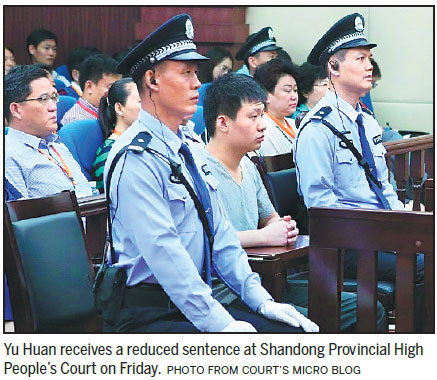Much reduced sentence reflects verdict of 'jury' of public opinion
 |
THE SHANDONG HIGH PEOPLE'S COURT commuted the life sentence of Yu Huan, a 22-year-old man, who stabbed and killed a debt collector who was threatening his mother after she failed to repay a loan, to five years in prison. Beijing News commented on Saturday:
The reduced sentence-from life imprisonment to five years in prison-came after Yu appealed on the grounds that he acted in self-defense. While still convicted of the crime of which the court of the first instance found him guilty, his punishment has been cut, significantly and justifiably.
The original sentence of life imprisonment triggered a public outcry, with some arguing the punishment was too heavy while others blamed the police on site for failing to keep things under control.
In the end, justice has been done. On the one hand, the much-reduced sentence suggests that previous weighing up of the facts and the judgment were not flawless. On the other hand, the rectifications were made in the wake of the public's demand for fairness, highlighting that China's courts are subject to public supervision.
The judicial transparency displayed during the trial and the revised sentence should be applauded. All information regarding the case, including photos and videos, was disclosed on the court's micro blog. Prosecutors also released an official investigation report elaborating on why the police officers, who failed to separate Yu and the debt collectors, were not guilty of any dereliction of duty.
Admittedly, judicial judgments require untainted professionalism and legal knowledge. But public opinion, which although less professional in a legal sense, matters a great deal to judicial justice. That explains why juries in countries such as the United States are composed of people chosen from all walks of life.



















